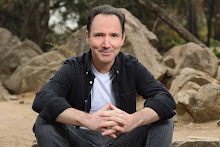
During the last 30 years, and specially during the first decade of the Century XXI, Innovation has been one of the most popular topics and subjects, as much as in organizations and in universities and public entities as well.
I was browsing a while, and I found that many sites are talking about changing paradigms as the key to innovation, and I agree with that. However, nowhere speaks to innovate the Emotional State or the Emotional Space in which we live and from which we learn: Fear.
Fear as emotion drives us to hide, to stay "stuck" or to run away. And as Emotional State, it leads us to want to have everything under control, being one of the biggest enemies for Innovation this way.
Then, how are we going to want to innovate from fear, when it leads us to control everything, and control doesn’t give any space or for flexibility or for much-needed creativity to innovate?
Then I have the opinion that we find it hard to innovate, not because we don’t have talent for that, but because since we live and learn from fear, we do not give permission to make mistakes, or for error; key variables to create change and innovation.
I guess this is the reason for the most popular phrase when talking about innovation: “we must dare”, because we only need to dare when we are afraid.
If in first place we innovate our Emotional State or Emotional Space in which we live, I mean, changing Fear for Gratitude, a whole open universe of possibilities and views will appear in front of us.
Unlike Fear that leads to the Control, Gratitude leads to Trust, and Trust is the main engine in order to coordinate actions with others, for others and for ourselves.
As I indicated that Fear predisposes us to hide, to paralyze us, or to run away, Gratitude predisposes us to want to be "a gift" for others as much as emotion, as Emotional State or Emotional Space, and in both cases it leads us to Trust.
Imagine how much innovations would be achieved from Trust, where both, wrong and making mistakes are allowed and not punished.
So I think as long as we live and learn from Fear and Control, innovation will be difficult or with slow progress, because pretending to break paradigms (to open boxes, fields, and mental maps that command us) from them it’s a very tough task. We better must first change the paradigm of living in Fear-Control, to live in Gratitude-Trust: we shouldn’t try to do different things while living in the same the same emotional paradigm.
I am sure that making this change, breaking paradigms will be very simple and easy, because we will trust others, the circumstances, the uncertainty, and we’ll trust ourselves.
Rodrigo Silva Ortúzar
rsilva@insideout.cl
http://ltaac.blogspot.com/
